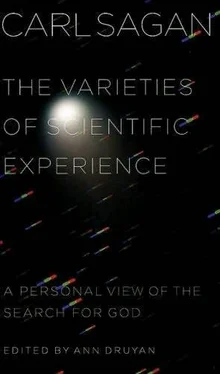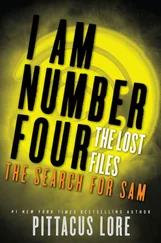CS:The question has to do with the Bermuda Triangle. This is certainly not significantly different from UFOs and ancient astronauts. It is as good an example. Here is a case where if you track the mysterious disappearances or sinkings of airplanes and ships, you find, it is alleged, a concentration of these disappearances in a triangular region off Bermuda. And the explanations that have been proposed are many, one of which is that there is a UFO on the Atlantic floor that eats airplanes and boats.
Now, there are several things that might be said about this. Is the statistical evidence as purported? In fact, is there any statistical evidence? Do we compare? Do the proponents of the Bermuda Triangle "mystery" compare the rate of loss of ships and airplanes off Bermuda to the rate of loss of ships and airplanes in some other region of the world with comparable weather and of equal area and traffic frequency? Nowhere do they attempt that. But others have, and found not a smidgen of evidence that the disappearance rate is larger there than elsewhere.
And also I would raise a related question. Why is it that there are no examples of mysterious disappearances of trains? Train sets out from one station, everything looks fine, and then it is supposed to appear at another station. It's not there. They go back to search along the tracks; it's totally disappeared! The thing about the ocean is you can sink in it. It has a natural explanation built in for mysterious disappearances, whereas railroad beds provide awkward opportunities for mysterious disappearances.
There is a famous case that I'll tell and then end. An enormous electrical rotor for a power-generating plant was completed-I've forgotten exactly where this was; let us say in Michigan-to be transported a thousand miles or so on a railway flatbed with the rotor tied down but in a vertical position. It left the factory perfectly all right. The train did arrive at its destination, but with no rotor. Rotor gone. And so, it being a very expensive piece of machinery, the railway detectives (you can imagine this as a change from the usual sorts of cases they have to deal with) go in a small railroad car along every inch of the thousand miles, and there isn't any rotor sitting by the side of the railway bed. So it has disappeared. Supernatural. And insurance companies are involved because it's expensive, so there's a second search. They can't find it. Nobody on the train saw anything amiss.
Twenty years pass, and then about three miles from the railway track a swamp is drained for a housing project, and there, at the bottom of the swamp, is this rotor, which must have broken its moorings and rolled three miles to the swamp. Can you imagine being out for a midnight walk and seeing this apparition rolling by? If anyone had seen it, it surely would have been an impetus to found a new religion.
Questioner:Well, I'd just like to ask you about your closing remarks. You were talking about possible proofs that God could have left us of His own existence. You don't think that you're making a rather arrogant assumption in that you are assuming that, for example, it could be possible that He has… that God has left in these religious writings the types of statements that you are suggesting, but it was simply that we ourselves have not got to that stage of development. For example, if He'd made statements about special relativity, a hundred years ago those would have been still meaningless. Could there not now be statements that in a hundred years would make sense to us that would not make sense to us now? Secondly, a more specific example, some people at the Hebrew University at Tel Aviv claim that there are in the Torah in Hebrew various words or messages in which were concealed the names of some thirty trees in Hebrew, with the letters of each tree equally spaced within the passages. And their suggestion is that it would have been impossible for anyone, without the use of computers, to have devised such complicated messages.
CS:This is from the Kabbalistic tradition?
Questioner:Uh-huh.
CS:I have looked at it a little bit, and I believe it is an example of the statistical error of the enumeration of favorable circumstances; that is-what's the best way to put it?-there is a stunning correlation between earthquakes in the Andes and oppositions of the planet Uranus. Is this a causal connection or not? First thing you ask is, how many connections had to be looked for before this particular one was derived? Volcanoes in Sicily with oppositions of the planet Mars-think of how many volcanoes there are in the world, how many earthquakes there are, how many planets there are, how many stars. If you start making a specific number of cross-correlations you will, of course, on occasion, come upon a coincidence. And what you have to do in a posteriori knowledge is to add up all those other cases of possible coincidences that you looked at or could have looked at.
Now, the cases that you are mentioning seem to me highly ambiguous. And I would ask, among other things, why these results have not been submitted to the leading scientific journals, Nature, for example, in Britain, Science in America. What kind of peer review have they got? Also, why something so obscure as the kinds of trees? Why not the detailed structure of a thousand amino acid proteins?
On the first part of your question about might there not be such clues waiting for us but we are not smart enough to recognize them: Well, maybe. You could never exclude that. But that is a slim reed upon which to base a religious faith. When they are discovered, then let's talk about them, but not until then.
Maybe there is a complete description of everything we want to know lying about on the surface of Pluto. And we won't be there until the middle twenty-first century, so we'll just have to hang on till then. Perfectly okay. Let's talk about it in the middle of the twenty-first century. For now there is no such evidence.
Questioner:In reality He is there. God is love.
CS:Well, if we say that the definition of God is reality, or the definition of God is love, I have no quarrel with the existence of reality or the existence of love. In fact, I'm in favor of both of them. However, it does not follow that God defined in that way has anything to do with the creation of the world or of any events in human history. It does not follow that there's anything that is omnipotent or omniscient and so on about God defined in such a manner. So all I'm saying is, we must look at the logical consistency of the various definitions. If you say God is love, clearly love exists in the world. But love is not the only thing that exists in the world. The idea that love dominates everything else, I deeply hope is true, but there are arguments that can very well be proposed, from a mere glance at the daily newspapers, to suggest that love is not in the ascendant in contemporary political affairs. And I don't see that it helps to say, forgive me, that God is love, because there are all those other definitions of God, that mean quite different things. If we muddle up all the definitions of God, then it's very confusing what's being talked about. There is a great opportunity for error in that case. So my proposal is that we call reality "reality," that we call love "love," and not call either of them God, which has, while an enormous number of other meanings, not exactly those meanings.
Questioner:Dr. Sagan, when you spoke to us yesterday, you mentioned something about Russia's approach to the recording of their history, and you said that Trotsky had virtually been written out of it. And how would you view the case for a corollary to that: Perhaps people can be written into history. For example, Jesus Christ?
Читать дальше










